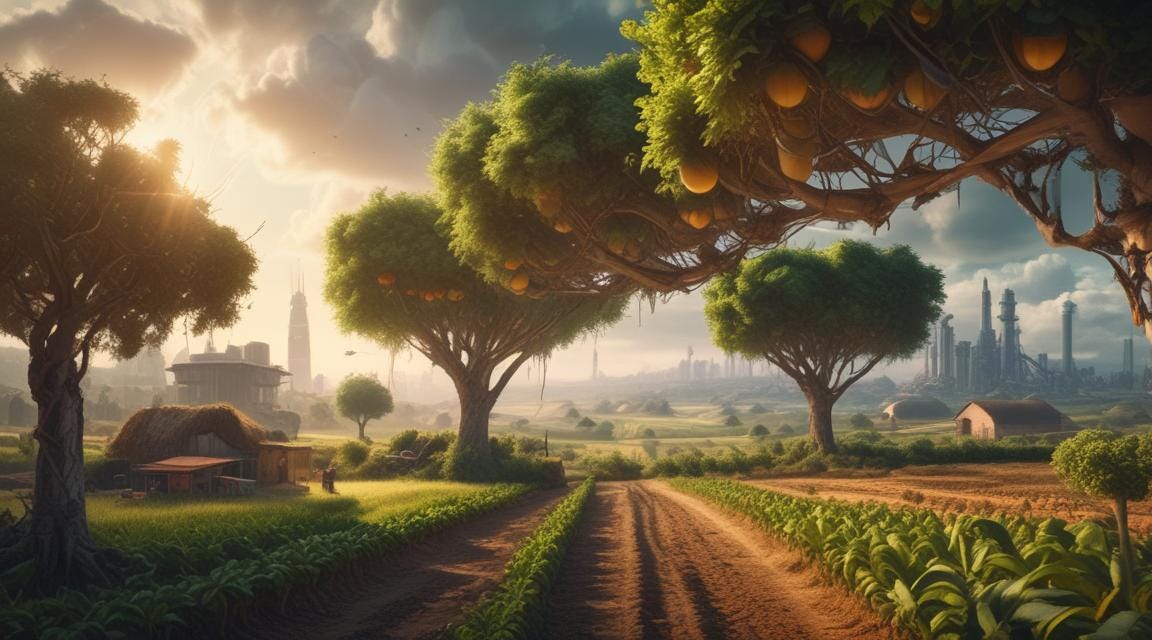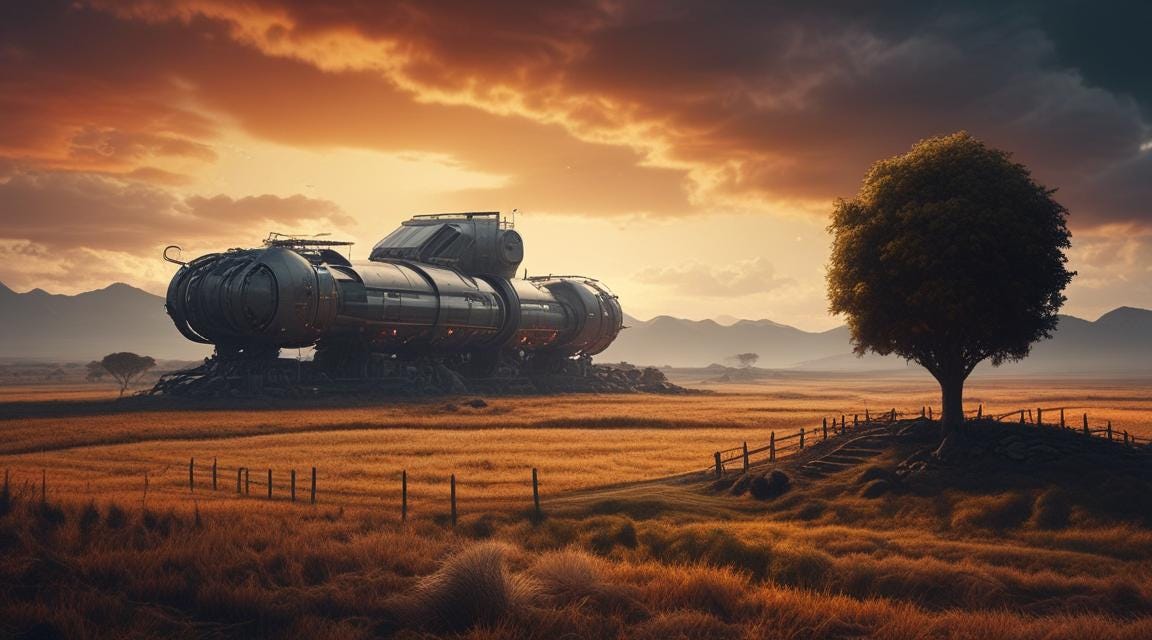Navigating the Fields of Change: The Fourth Industrial Revolution's Impact on Agriculture
A Fusion of Innovation in the Digital Era
In today's world, we find ourselves amidst a profound transformation, characterised by exponential growth in both the physical and digital realms.
This era of rapid change is driven by the dynamic interplay between tradition and modernity. Advancements that permeate every aspect of our lives.

The Fourth Industrial Revolution (or “4IR” as this period is often called) is marked by innovations that are shaping and reshaping whole industries, including agriculture.
It’s a truly transformative era characterised by the fusion of digital, physical, and biological technologies, disrupting and revolutionising industries across the globe!
4IR encompasses innovations like Artificial Intelligence (AI), robotics, the Internet of Things (IoT), 3D printing, and advanced materials, are blurring the lines between the physical, digital, and biological spheres; fundamentally altering the way we live, work, and interact.
“By harnessing the power of digital technologies and innovation, we can create a more sustainable and inclusive world, where resources are used more efficiently, waste is minimised, and economic prosperity is shared by all."
- United Nations Industrial Development Organization (UNIDO)
So it’s clear. At the heart of this revolution are technologies like AI and automation, which are revolutionising the way we approach agriculture right before our eyes.
The emergence of AgTech, a beautiful fusion of agriculture and technology, is a testament to the transformative power of these advancements. And advancements are flowing in fast and quick.
However, amidst this era of excitement, the frenzy of innovation, and the dystopia of technological disruption, it is crucial to consider both the challenges and opportunities that lie ahead for the agricultural sector.
One of the key challenges is ensuring that these technologies are accessible and affordable for all farmers, regardless of their location or resources. New technologies can help with this, but they can just as easily broaden the divide between the have’s and have-not’s. This will affect accessibility of both tools, and sought after benefits of transformation.
Additionally, there is a need to address concerns related to data privacy and security, as the adoption of digital technologies (in agriculture included) means an increased reliance on data-driven decision-making, especially as fewer humans form part of the equation between the worlds of observation, decision-making, and the actions that follow.
Despite these challenges, we must concede that the opportunities presented by 4IR in agriculture are vast. AI-powered solutions are helping farmers increase productivity, optimise resource use, and reduce negative impacts on the environmental.
For example, drones equipped with advanced sensors are providing real-time data on crop health, empowering farmers in making informed decisions on a host of concerns including: irrigation, fertiliser use, pest control, and more.
"Technology is changing the way we live, work, and relate to one another, and the Fourth Industrial Revolution is at the center of this transformation. This revolution is characterised by a range of new technologies that are fusing the physical, digital, and biological worlds, impacting all disciplines, economies, and industries, and even challenging ideas about what it means to be human."
- Klaus Schwab, Founder and Executive Chairman of the World Economic Forum.
Furthermore, digital technologies enable farmers to reduce waste and improve profitability. AgTech is helping them to connect with markets more efficiently, find buyers, and optimise their supply chains - or join one that is.
By embracing these technologies, farmers can not only enhance their own livelihoods but also contribute to the sustainability of their operations and the agricultural sector as a whole.
Think #foodsecurity on a global scale.
It’s a big deal.
The Fourth Industrial Revolution represents a pivotal moment for agriculture. It’s offering unprecedented opportunities for growth and innovation. However, realising these benefits will require a concerted effort to address the challenges that come with this transformative change.
By embracing the potential of AI, automation, and other digital technologies, the agricultural sector can pave the way for a more sustainable and productive future.
You can be absolutely sure of it…
We are living in an exciting time; an exciting era of innovation.
And it’s just getting started.
Further Reading:
"The Fourth Industrial Revolution: what it means, how to respond" - World Economic Forum: https://www.weforum.org/agenda/2016/01/the-fourth-industrial-revolution-what-it-means-and-how-to-respond/
“Reducing input costs and improving grape yields with precise VRA - Aerobotics: https://www.aerobotics.com/customer-stories/reducing-input-costs-and-improving-grape-yields-with-precise-vra/
"Agriculture 4.0: The Future Of Farming Technology" - Forbes: https://www.forbes.com/sites/forbesbusinesscouncil/2020/11/25/agriculture-40-the-future-of-farming-technology/?sh=2a10da6d3087
"How the Fourth Industrial Revolution is impacting the agriculture industry" - AgFunderNews: https://agfundernews.com/how-the-fourth-industrial-revolution-is-impacting-the-agriculture-industry.html
"The Fourth Industrial Revolution in Agriculture: A Technological Opportunity for Developing Countries" - The World Bank: https://www.worldbank.org/en/topic/agriculture/publication/the-fourth-industrial-revolution-in-agriculture-a-technological-opportunity-for-developing-countries
"The Fourth Industrial Revolution: Challenges and Opportunities" - Investopedia: https://www.investopedia.com/terms/f/fourth-industrial-revolution.asp




